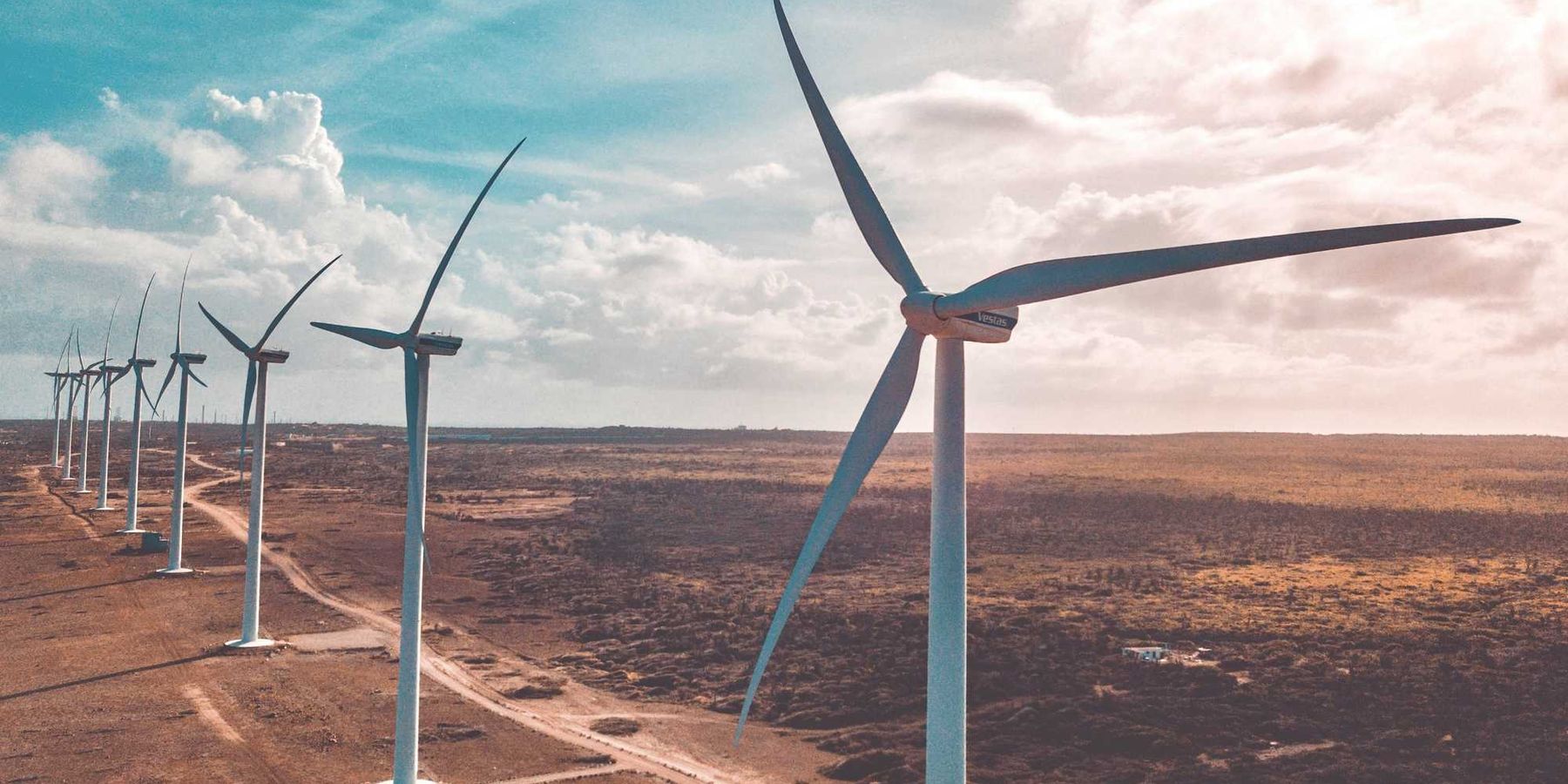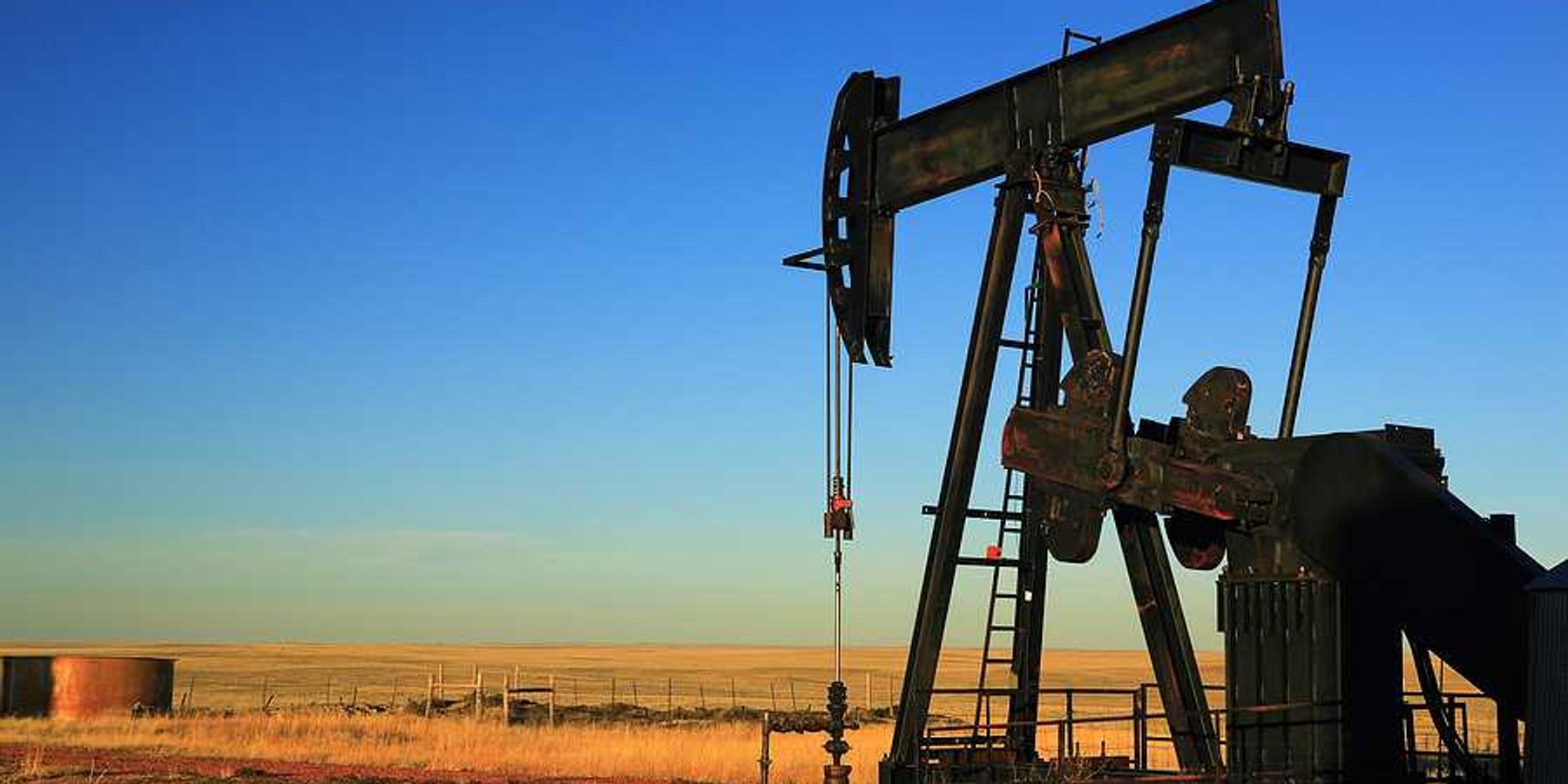LISTEN: Revisiting our conversation with environmental justice pioneer Dr. Beverly Wright
“The righteous fight in the end will win. Don’t be swayed by all of the noise.”
Today we’re re-airing our conversation with Dr. Beverly Wright, who joined the Agents of Change in Environmental Justice podcast last year to discuss her journey as an environmental justice pioneer.
This episode originally aired in June 2023 and we are re-airing it today to celebrate Juneteenth, as Dr. Wright’s work on justice and equity speaks to the spirit of the holiday and what it represents. We will be back in two weeks with a new episode.
The Agents of Change in Environmental Justice podcast is a biweekly podcast featuring the stories and big ideas from past and present fellows, as well as others in the field. You can see all of the past episodes here.
Listen below to our discussion with Wright, and subscribe to the podcast at iTunes, Spotify, or Stitcher.
Transcript
Alexa White
Welcome to the Agents of Change in Environmental Justice podcast. I am Alexa White.
Candis Hunter
And I am Candis Hunter.
Alexa White
We are excited today to be talking to Dr. Beverly Wright. And so Dr. Beverly Wright is the executive director of the Deep South Center for Environmental Justice, and a pioneer in the environmental justice space. And so we are really glad that she could take the time out of her day to come talk to us. And so, Dr. Wright, we'd like to know, what is the current campaign or project at the Deep South Center that you're most excited about today?
Beverly Wright
Well, we have several, and it's hard to pick. But I would say right now the Justice40 project that we're working on, which is really designed to make certain that the billions of dollars that are being set aside by the Biden administration to redress the harm that has existed for many generations in our communities from environmental pollution and the devastation of climate change, which we know are connected. So that project I'm extremely excited about but I I have to mention our second project, which is our Beyond Petrochemicals campaign that we are launching with funding from the Bloomberg Foundation, Justice40 project is actually funded by the Bezos Foundation. So these are two very impactful, meaningful and projects that are close to my heart, the one being certain that communities finally receive dollars that are necessary for them to become whole, over the many, many years of discriminatory practices of citing facilities, toxic facilities now community, the non-enforcement of regulations for controlling air toxins, the failure of the Clean Air Act completely, because of the inability, because of the political side of that act determining emission regulations, most of whom are not at the point that's really protective of communities, those regulations or industrial standards, you know, so we end up with Cancer Alley and six so that's an 85-mile stretch of land between New Orleans and Baton Rouge that was home to 136 petrochemical plants when I first started this work in 1992. But it's now home to 156 petrochemical plants, all of which increased under a Republican governor agenda that is very friendly with the petrochemical industry. So we were net right now looking at 170 facilities in cancer alley, with 29 new facilities about to come online from all of these industries and make no mistake: the pattern of siting dirty facilities in our community and in poor communities and in Louisiana is mostly African Americans has continued. So the number of new facilities that are coming to these communities that are already suffering is 29. All in response to the oil and gas industries attempts to increase their profits as we push to move away from petrochemicals and the state of Louisiana, for some reason, is just open to the petrochemical industry and all kinds of dirty waste for money. And we end up in a commune in a living in a state that is rich in oil and gas. But the opposite is occurring in terms of wealth, we are a poor nation. So we know that there's a converse relationship between dirty industry and wealth. And you can actually see it in Louisiana. Very, very rich state, in terms of oil, but the communities are very poor, the state itself is a very poor state. So this Beyond Petrochemical campaign includes a number of pieces. The first is the research for it, where we have actually mapped the TRI pollution or emissions in the corridor, by race, and by income, that this particular study that we're doing now is a comparison between 1990 information that we did when we first started, it was our first project to do the spatial distribution between TRI emissions and and race and income. We did that in 1994. And what we found was that there is there was there was a... I'm trying want to say this just right, because otherwise, it's long, but a long sentence. But what we basically found was that there was a disproportionate number sat disproportionate sitting in African American communities in the Corridor, which led to larger amounts of pollution or emissions in Black communities than in white communities. And so what we basically found that 80% of all Black people living in the chemical Corridor live within three miles or five kilometers of a facility. If you can imagine, in Louisiana, that time was 32%, African American. But those of us living in the corridor made up 37%. So we were overrepresented in the car with the dirtiest of the facilities being cited where we were. We live closest to them, and we're bearing the brunt of risks. So the risk score higher, the project we did in 1994. And that was the beginning of collecting data so that the federal government could could decide what parameters should be used to define an environmental justice community because nothing happens within the government without a definition. So we're complaining about being exposed, and we came up with the term environmental justice, and they couldn't do a thing because they didn't know what that was. And so one of the things to help them define that community was doing this particular exercise. And now you can see that these particular types of what do I want to call is research is being done continuously to define groups that need help. But now, in the... now it's much more inclusive, because it's not only including spatial distribution, but it's including a number of new tools that have come on board since the 90s. And that is social vulnerability, the CDC tools, and now you have to Climate and Economic Justice Screening tool, that extremely flawed, got Justice40, and we have developed through Dr. Bullard's project the Historically Black Colleges and Universities (HBCU) Climate & Environmental Justice Screening Tool. To you hear more about that. So as historically black colleges and universities Climate and Economic Justice Screening tool to where we include race, and our calculations, but the Climate and Economic Justice Screening tool does not. So here we are, again, which makes no sense to me, because we started out with race, being the predictor, using it as a variable to determine who really how do you define communities, but you get all the way to 2023. And now all of a sudden, you can't use race as a predictor of for a definition of an environmental justice community.
Candis Hunter
You know, you mentioned the great work that your organization and others are doing with Justice40. And one of our questions was, is how do you see Justice40 moving beyond and evolving beyond this current administration?
Beverly Wright
Well, I can tell you that the number one thing on my prayer list is keep Biden the life that, you know, keep Biden alive and healthy, because I'm going to tell you, I don't hold much hope for anything happening past this administration at At this point, if we get a Republican administration is they will stop everything. And one of the things that this this administration is doing is trying to get as much money out as they can, I mean, they are pushing billions and trying to get the money out. So that, you know, if the other side wins, and I'm praying that they don't, they won't be a, they can't stop what's already out. So I'm saying, just in the amount of money that's out, and if you see this train that they're on the thriving communities, $50 million dollars, you know, the tic tac 10 million, and every turn, they're trying to get the money's out before 2024. So I say to everyone, philanthropy has to step up. Nonprofits have to step up. Because this is an opportunity that I've never seen in my lifetime, or anybody else. And we cannot be sure that it will be here, when the Biden administration is gone. They're trying to institutionalize as much as they can. But you know Congress, and, you know, God knows if they get in, they will stop everything. And it will, it will once again be all about rich folks, which is what it always is, and with a lot of poor people voting for them, which is a paradox. You know, it's almost like when you look at the Civil War, and all the people who fought and died in that war, most of them didn't have a slave, would never have a slave and were poor. But they work to keep slavery for rich people. And so that's that that communications point that the Republicans have been very good at having people vote against their own self-interest. So we understand that trying to combat that has been very difficult.
Candis Hunter
Absolutely. And that kind of feeds into a question that we had about just kind of changes in administration and protecting the success that you've made in EJ. And so can you just kind of share some key nuggets with us on how you've protected that success that you've made in environmental justice through the change in the hands of administrations?
Beverly Wright
One of the things that I have been really complaining about for the last 10 years is the fact that we have some environmental justice organizations that have begun and then have been able to remain standing with no dollars. But the work that we've done has been really incredible and groundbreaking. Organizations like EDF and Sierra Club began with an endowment of $100 million. So they can withstand, they started with $100 million endowment. But nobody's talking about endowing environmental justice centers or organizations like mine that have been around in spite of not having any money. One of the things that's happened with the Biden administration is that philanthropy is now very interested in EJ organizations like mine. They have looked at the fact that for the last 20, 30 years, they have been putting large sums of money in organizations and the results have been the same: no results, as it helped deals with health disparities and a number of other issues they've dealt with. Somebody found a little organization like mine, like Bullard, like Peggy Shepherds, and found that we were making a difference! We were having celebrations for wins. And they decided that they wanted to know how it was done. So Robert Wood Johnson, for example. We I'm sorry, we have a grant with Robert Wood Johnson, where they are doing a deep dive into what we do and how we do it. Community-based participatory research actually came out of the work that I was doing at the Deep South Center. I just didn't write an article on it. And so the next thing we know is that the communiversity model that we put in place, which really has at its core, community-based participatory research, citizen science, all of those things, but respect for communities and respect for their knowledge, which was the beginning of the work that we've done. That's still a part of the work that I don't I don't think is ingrained as much as it should be even in those other concepts. But somebody discovered us and what came out of that was more philanthropic organizations, having deep conversations with us about what we do and how we do it, and then funding our work. So the Biden administration, doing things like placing in EJ people on the WeJACT, in other words, high-profile, high-profile boards, and we'll call them factors which is what they called in the federal government. For little Oh, me and other EJ people, has also lifted our profile and made financially a lot more stable than what we've we've ever been, with talks about endowments at this point. But the grants that have come to us through the Biden administration competitively, by the way, has in fact, infused organizations with money in such a way that we can finally staff up to get work done, we have actually have money to hire people. And I think it's given, it's sort of changed the paradigm on, you know, what qualifies you as a credible source for information, or knowledge and work.
Alexa White
We want to change gears just a little bit into thinking about the international space. So I was with you in Egypt, when we created we, you hosted the first Climate Justice Pavilion at COP. And so we invited a lot of people from the African diaspora. And I wanted to ask you, where do you see the environmental justice movement going internationally? Are there any environmental justice international movements that you're really interested in right now or that are related to the work that you're doing now?
Beverly Wright
Yes, so a lot of people don't know this, but that the beginning of my, in the beginning of my environmental justice work in the US, we established a relationship with the first Environmental Justice Network in South Africa. We actually went to that particular COP, and we bought computers and everything to set up an office for our work while we were there. And we left them with all of that, so that they could continue to work. So we've had that sort of connection early on. But it takes a lot of resources to continue an international relationship, and the Environmental Justice Network didn't have much money. But we did continue relationships. And I would say that our strongest relationships have been through South Africa, and Brazil. So we had the connections in Brazil, and that has continued through other kinds of just events happening with the community in Brazil, our articles being published in Spanish, by the organizations on the ground did Dr. Bullet in mind, but what's really excited about now is that the climate justice pavilion, and I've been going to COPs for –I've gone to at least 14–And at every cop we connected with pleasure, that's a Pan African nations, you know, organization at COP. Um, but we've never really been able to get a project moving, it was always a matter of resources. And just recently, the Environmental Protection Agency called us and asked to help them to sponsor a connect between Africa and the US is something that the administrator would like to see happen. And here's something really exciting for you that I didn't know Idris Elba, his parents are from Sierra Leone. And I forgot Ghana or Kenya. So he has his African parents, and he's really interested in the environment. So the administrator took a trip with Idris Elba to those two African countries. And what has come out of that is a relationship between our HBCU climate, HBCU climate change consortium where we have faculty mentors from HBCUs, we had like 32 HBCUs. We're now adding four faculty mentors from Africa. And they are joining our organization, our meetings so that they can be a part of our upcoming Climate Change Conference in October. And for I think it's for African students will be coming to our climate change conference with them and presenting. So I find that our relationship with Africa is budding more on the side of connecting young people and universities and those types of resources together, rather than at the community-based organization level. But we see the connection through the universities because all of these universities are working with communities on the ground on these issues. We see this as a way for us to once again begin engaging community-based organizations in Africa. And it seems like it's Kenya, Ghana, Sierra Leone and Nigeria. These are the places that were making the connection, in South Africa, the the Pan African environmental justice organization hosts a summer camp on climate change that includes 700 African students from all across the continent. EDF, by the way, has been working with us and they plan to sponsor three, three HBCU students to go to the conference in Africa this summer, they'll pay for three students and a chaperone.
Alexa White
It's so exciting to hear that all this money is coming in. I remember. There was yes, I remember everything when we were in Paris, that COP. And so it's nice to hear that everything is kind of coming to, coming to a head. And so in light in light of that, one of our one of our last questions is so in creating and maintaining the Deep South Center for Environmental Justice, are there any mistakes or things that you think other people could learn from that are coming after you that you really wish maybe that you have done or you see mistakes that other people are doing that our listeners could could really learn from?
Beverly Wright
Yeah, well, um, you have to understand when you do this kind of work, you make a lot of enemies. And you make big enemies like with the petrochemical industry, my name was on the hit list for the chemical manufacturers' Union when I first started doing my work, I can remember walking into rooms, and I'd hear people groaning because they knew I was going to that Mike, just to bless them out over what was happening to my people. But I learned and one mistake is when you try to respond to all the negative stuff, and so much of it comes after you feel like I gotta write this letter, I have to respond. And at some point, I'm like, "You know what? all this time that I'm taking to respond to evil and negative is taking time from the good work." So our motto has become keep your eyes on the prize, ignore everything that you are able to ignore. Just pretend like it doesn't exist. And what I found is that it goes away. Because it's, it's hot air. It's jealousy. It's the strategy of the petrochemical industry. They literally sent the federal government after me while I was at Xavier to be audited trying to find that, that I had misappropriated funds in some way, they spent eight months at Xavier and didn't find one that one penny had been misused. So they came up after it's hard in the beginning. So the other thing is, you need to make sure you play by the rules. Don't take shortcuts. Whatever it is with the money, use it the way it's supposed to be used so you don't get in trouble because they will be looking at you. They sent newspaper journalists on trips with us through Cancer Alley and everything, trying to find something negative to say and everyone a lot of negative things about us but I just never responded. And so now when I look back all of those people, I don't know where they are, but we're still standing. So that's what you have to remember. You know, the righteous fight, in the end, will win. And don't be swayed by all of the noise. And you know, we're talking about working with what I call Despised minorities in what it means to be a despised minority. That's people of color in general, Latinos, Native Americans, Asian Pacific islands, and Black people. Then you got the hate the breakdown of the hate. In the Africans who see themselves a Nigerian, EBO, and all of that, when you put all of us in a room, with all that has happened to us to make us really sick and crazy, you can get some really nasty stuff that comes out of that. And so trying to keep your head on, in spite of all the arrows that are coming from you from the industry, you know, from supposed it friends from other ethnic groups, we all go through it, you have to learn this, shut out the noise. And if you can do that, and just stay focused on what your mission is, and always move forward around that goal, you'll be all right. If not, you'll be like so many hundreds and 1000s of organizations who have fallen to the wayside, they fall into the trap that's really put there to tear you down, you know, the division and all that, that's to make certain that you don't move forward, like what's happening with our politics today. That's what that's all about: the hatred, the, you know, you're taking, give us what is it "make America great again," you know, all of that is just divisive stuff meant to divide and conquer, and I'm afraid of twinning in our country, maybe not because the Liberals won, and Wisconsin last night, so it's a close call. But if we all go out to vote, we can beat him, you know, but but that this is these are all strings that are being pulled for our demise. And so and also, I would say that find a team that you can trust, a small team, a circle team that you can trust, and that you can be a support to one another, and then it works, I think. I had no idea I would be here when I started this organization in 1992. And I can tell you, in 2017 when I left D University and went out on my own, I had no idea that I would flourish. You know, because after that, I thought it was going to really be hard, it turned out to be very easy. And I think it's timing is everything the time that I left to George Floyd, murder, the Biden administration, you know, the Justice40, all of that just came together, kind of at the same time. And it's helped to propel us to where we are, you know, when I looked around and saw I received something in the mail to respond to an invitation to apply for a grant, that would be a million dollars a year for general support. But there was a limit on how much money you could have your your budget, your yearly budget, and I was over that. I was like, oh my god, this is amazing, you know, like, I actually make too much money or bring too much money into a fly for a million dollars. Times have changed, you know, absolutely have changed. And I've been able to pay for hospitalization for all of my staff, you know, retirement plans, and all of that kind of stuff. So we're not a second rate organization anymore.
Alexa White
And so the last, the last question we wanted to ask is, are there any up and coming groups that you want people to pay attention to, or people that you think are kind of newer, but doing really good work that you could talk about?
Beverly Wright
Well, I think the National Black Environmental Justice Network that is just being reorganized as a group that and I saw when we were named one of the top five organizations to look out for and I only wish Dowman-Smith was alive, you know, he was one of our heroes started and Vijay and we couldn't rub two nickels together back then it was hard to get money, the Lutheran Church and the the Methodist Women organization supported NBEJN. And back then if you can believe in Methodist Women, I didn't know they had all that money, but they do and they supported us and UCC. It was all churches, that's how we kind of survived back then and if he were alive to see, you know that NBEJN actually gets grants enough to keep us afloat in a good way. I would say NBEJN in particular. I don't really know many of the new and upcoming groups because I've been too busy to really know who they are, but I do know that I don't want to call out the wrong names, but I did meet a few recently, but I think they are they already have quite a bit of money at this retreat when I was attending. So Solutions Project, I think that's one, the Solutions Project seems to be but I think they're pretty stable. But they I met people involved in that and thought they were really doing really good work.
Alexa White
Fantastic. Yeah. This has been a lovely conversation. Thank you so much for all of your time and energy that you put into the answers. They were extremely thorough, and very profound. So thank you so much for participating in the Agents of Change podcast.
Beverly Wright
I want to say this one to say that I am so very proud of you, because I met you while you're still in house. And as a professor, we, we just get so excited, you know, when we see that our students have gone on to do great stuff, you know, and that you're not superficial money-chasing kind of student, which is what we were fighting against, for a lot of years, just money. So it just makes us so proud to see you still doing the work and still inspired and excited. Uh, you know about that. And to my Spelman sister where all my money went for six years because both of my daughters went there. I'm proud of you as well. And thank you both for what you're doing right now. Even if it's connected to your school. I don't know your grade. I don't know what it's connected to. But this is wonderful. And thank you.













